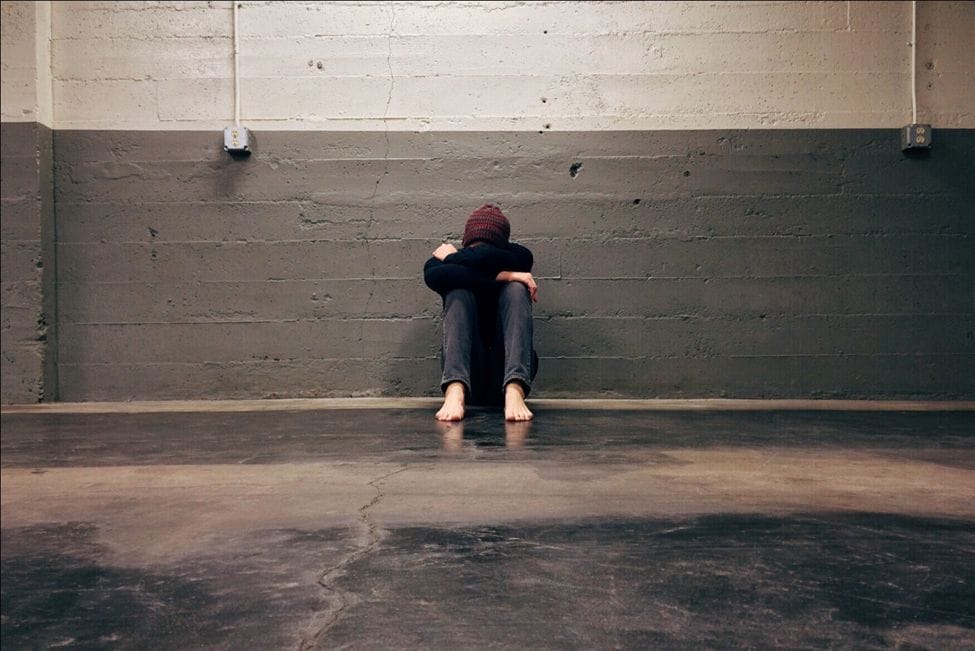In the Wake of a Suicide

There is nothing more painful than losing a loved one to death, and even more so as a suicide. The incident is often sudden, leaving you stunned in its wake, and as a result, your life could get suspended in ways you could never have imagined. In such a situation, it is understandably challenging to handle practical matters such as figuring out what to do with the person’s belongings.
However, moving on is an integral part of healing, as painful as it can be, and if you are going through this process, you need to understand that you are not going it alone. There are people to take you through the emotional healing process and professionals who will help you with the physical process, and that you can rely on them to help you continue with your life.
Discovering the Scene
Few people get through life without experiencing some trauma. Whether this is a violent incident or losing a loved one, most people go through difficult situations. However, the reality is that few things could be more traumatic than having to face the fact that someone important to you took their own life.
Depending on how the suicide happened, the scene of the incident can be quite gruesome, and if it is discovered after a bit of time has passed, the decomposition could make it much more horrific than it initially was.
Processing the loss of a loved one to their hand is already an emotionally and mentally taxing process, and it can be worsened by having to see their remains. It can be made even more complicated by recognizing the fact that the scene will have to be cleaned up. Most likely, in such a scenario, there is no prior experience to use as a reference.
You may think, ‘well, how do I clean this up?’ but there are several reasons you should not take on the job yourself. The three main reasons are:
· It can have a very severe effect on your emotional and psychological wellbeing
· It can be unsafe for you in the short-term because of the exposure to all sorts of biohazards
· If you do not clean up properly and thoroughly, you may be putting at risk anyone who comes onto the scene for many years in the future.
The Physical Cleanup Process
If you discover that a loved one has committed suicide, you must not stay on the scene longer than necessary and immediately contact first responders to come and help you. Emergency personnel will arrive as soon as possible to deal with the scene and the body.
Once the remains have been removed, the scene has to be cleaned up for it to be inhabitable again. Families don’t necessarily move out, and if the suicide happened in a building where many people come and go, such as an office, this activity is not going to change. Cleaning up the site involves a process called biohazard remediation, and is usually carried out by crime scene cleanup services who are trained to carry out the job.
It involves the cleanup, sanitization, deodorizing, and restoration of the scene. Cleanup consists of the elimination of any biohazard waste that could be on the scene, such as bodily fluids and pathological matter. It has to be carried out carefully, not just to ensure the safety of the people who may have access to the room in the future, but also for the personnel involved in the cleanup.
For this, they will require personal protection equipment, which would include, at minimum, goggles, masks, aprons or smocks, and gloves.
Sanitization involves using chemicals to get rid of pathogens and bacteria that could be lurking around the scene, especially if the body has already started decomposing. A decomposing body also releases an overpowering and persistent smell, which can be extremely foul and even frightening. Deodorizing involves permanently getting rid of this smell.
Restoration of the scene to its prior state ensures that it is inhabitable again.
The Emotional Process
The grieving process after losing a loved one to suicide is different than losing a loved one to accidental or natural death. Losing a person to suicide often brings grief that is accompanied by guilt, anger, shame, and a sense of failure.
It is important for you to understand that your feelings are natural and appropriate and that you should recognize them to be able to move on towards mental and emotional healing.
If you are grieving, you do not have to face the horror of the death site on your own. There are multiple support services and resources for people in your position who can help you out and give you the psychological care you need. If you are suffering from the trauma, don’t try and face it alone, and reach out for help when you need it.
Safety risks aside, the emotional risk attached to taking on the responsibility of cleanup is also very high. Following the death of a loved one, particularly to something as horrifying as a suicide, you should spend your time in a way that it restores your emotional health and helps you move on from the incident.
There are often other important things to take care of as well, such as funerals, and handling the effects of the deceased. It is best that you leave the physical cleanup process to trained professionals instead.
Crime scene cleanup services are also there for you to hand over the responsibility of cleaning up the scene. Bio-One, for example, operates with the motto Help First, Business Second, and ensures that the work is carried out in a caring and respectful way, to allow you to move on with the trauma without having to worry about the cleanup process.


